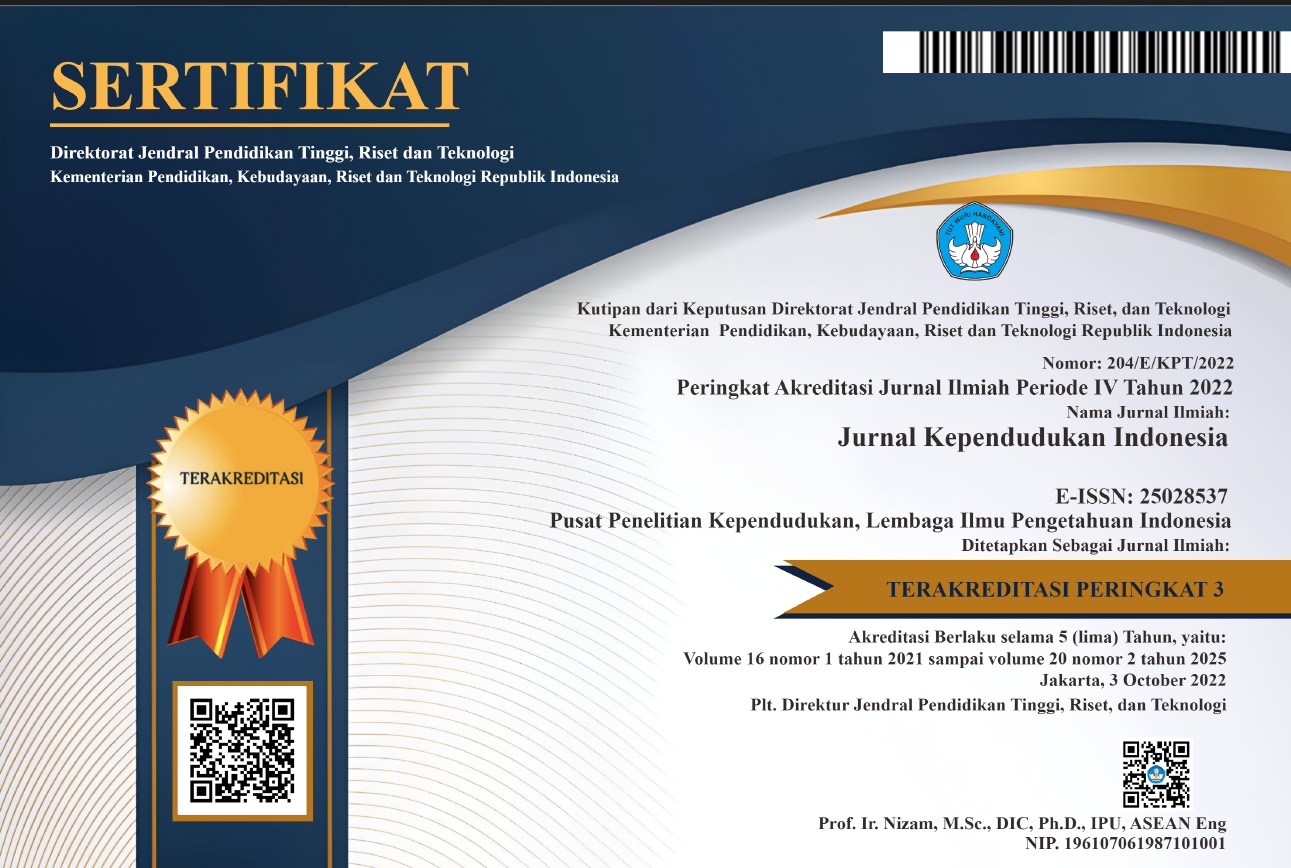Pendidikan vokasi, pelatihan dan pengangguran usia muda di Indonesia pada masa pandemi Covid-19
DOI:
https://doi.org/10.55981/jki.2023.1697Keywords:
human capital, youth, unemploymentAbstract
The Covid-19 pandemic has increased the unemployment rate by 1.84% points in Indonesia from August 2019 to August 2020. Young workers were more affected by the shocks than adults. Some of the causes of this unemployment come from the individual human capital component, namely education and job training. This research uses the National Labor Force Survey data and the binary logistic regression analysis method. There are asymmetric results from the influence of human capital on youth unemployment. The young workforce with vocational education and training is less likely to be unemployed in the formal sector but more likely to be unemployed in the informal sector. Therefore, the effect of vocational education on youth unemployment in Indonesia during the Covid-19 pandemic has a different impact in the formal and informal sectors. The tendency of the younger workforce to work in the formal sector is related to increasing education and the expectation of a more decent job.
Downloads
Published
How to Cite
Issue
Section
License
Copyright (c) 2023 Author (s)

This work is licensed under a Creative Commons Attribution-ShareAlike 4.0 International License.

